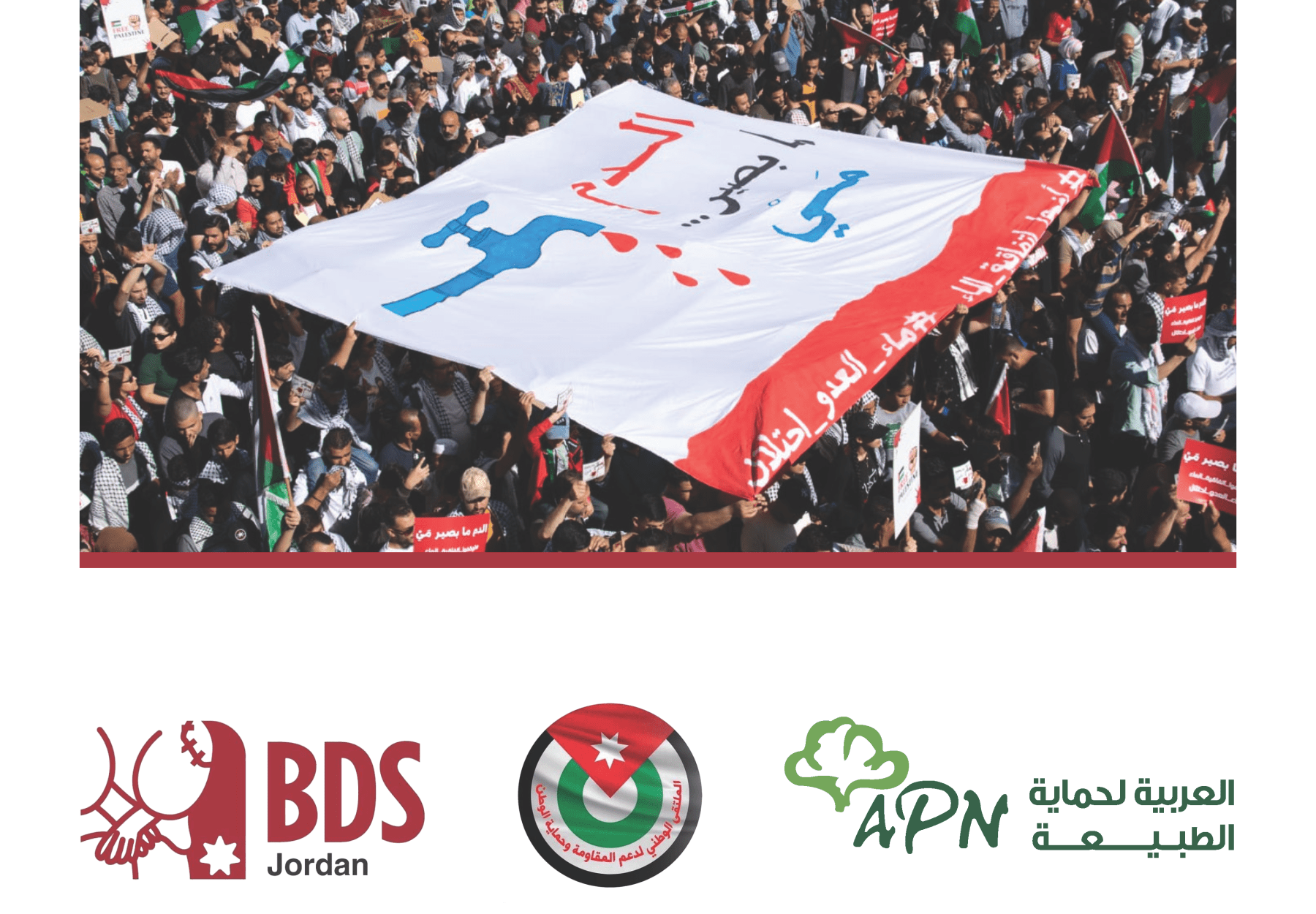
APN | Amman
19 November 2023
APN, in collaboration with the National Forum to Support Resistance and Protect the Homeland and the Jordanian Boycott Movement BDS, released an informative fact sheet on the water-for-energy deal.
The project involves the construction of a large solar power plant with an energy storage system in the Jordanian desert, aimed at producing 600 megawatts annually for the occupation's benefit. In return, the Zionist occupation would supply Jordan with 200 million cubic meters of desalinated water each year. This would be achieved either by establishing a dedicated desalination plant on the Mediterranean coast or utilizing existing facilities.
Over the course of several weeks, APN and its partners met with 20 experts in the water and energy sectors. The focus was on exploring the current water situation in Jordan and highlighting the risks associated with entering into a new agreement with the Zionist occupation, effectively mortgaging a crucial sector under their control. This concern is particularly heightened given the occupation's strategy of starvation and dehydration on Gaza to subjugate its people. This situation underscores the absence of a moral deterrent against potentially using water as a future leverage tool on Jordan.
In light of the above, these meetings culminated in the formulation of scientific and practical alternatives to the water-for-energy deal to address the water deficit in Jordan without engaging in any normalization projects with the Zionist occupation. They encompass strategic investments in desalination plants, domestic power generation, judicious water resource management, investments in wastewater treatment plants, and the desalination of brackish water. Additionally, the alternatives emphasize the exploration of complementary agreements with neighboring Arab countries, the assertive pursuit of Jordan's rightful water allocations from the Zionist entity, and the imperative to initiate a public fund to bolster support for the water sector.
Click here to read the paper in Arabic.